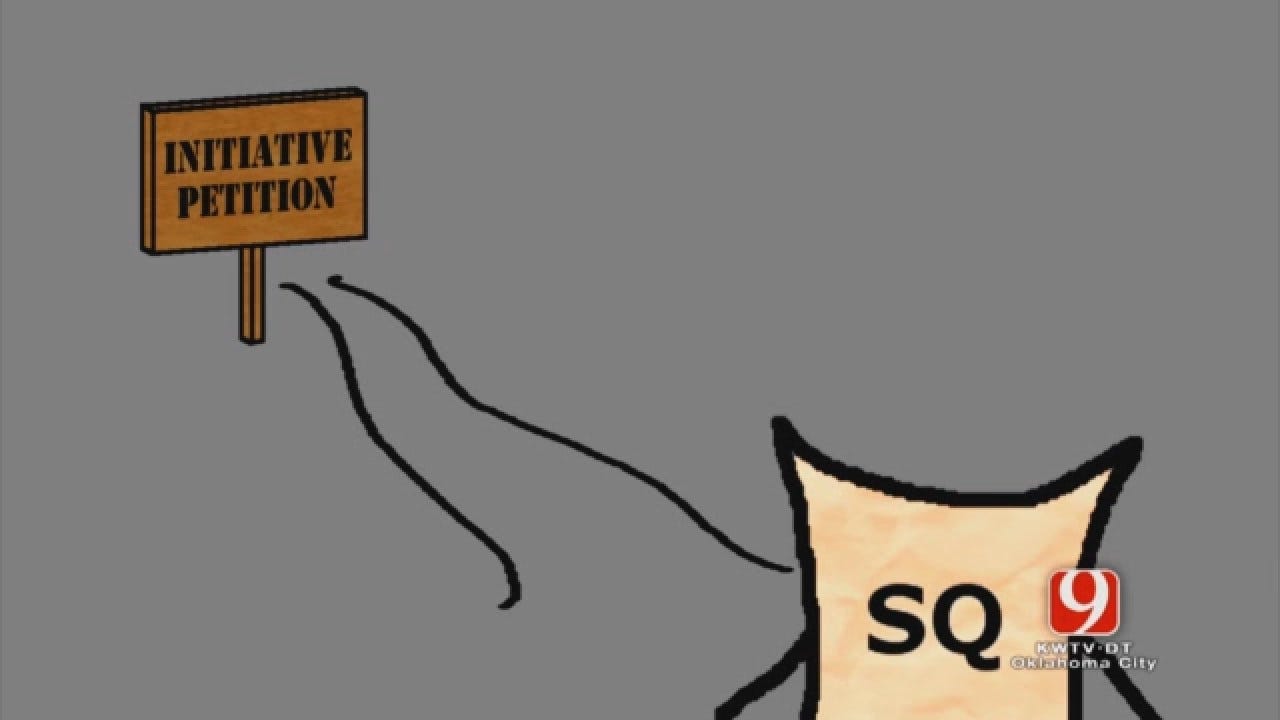How Does A State Question Make It To The Oklahoma Ballot?
<p>State questions seem like they've been everywhere in the news lately. In the last two election cycles, there have been 21 different questions, and they can have far-reaching effects or signal major shifts in the state. </p>Tuesday, September 25th 2018, 1:00 pm
State questions seem like they've been everywhere in the news lately.
In the last two election cycles, there have been 21 different questions, and they can have far-reaching effects or signal major shifts in the state. But if we have elections, why do we have state questions at all, and how do they make it to the ballot?
News9's Grant Hermes explains.
According to the Oklahoma constitution, the people reserve to themselves the power to propose laws and amendments to the Constitution and to enact or reject the same at the polls, independent of the Legislature, and also reserve the power at their own option to approve or reject at the polls any act of the Legislature.
What?
In English, all that means is that voters are allowed to propose their own laws or changes to the state constitution outside of their elected representatives -- a way to make their voices heard by going around who they send to the Capitol.
State questions can get on the ballot in a few ways:
First is an initiative petition. This is when a person or group collects signatures that then have to be verified and signed off on by the governor to create a new law or amendment. But if you're adding to the constitution, good luck! Those petitions need nearly triple the amount of signatures compared to changing a new law.
Next, there's what's called a legislative referendum, something that passed the Legislature but needs direct approval from voters like this year's State Question 801.
And then there's a referendum petition. This is the same as the first (initiative petition), but instead of creating a new law, it's a change to a current one.
Each of these have different signature collection periods and then waiting periods for challenges and different signature totals they need, too.
They can also be challenged in court in what's known as a "petition protest." When that happens, the protest and the state question get sent to the state Supreme Court for an official ruling on whether the state question could go to the ballot or could end up being scrapped.
Sometimes state questions can come back as "zombie questions!"
Seriously.
If a petition gets the right amount of signatures but doesn't get verified in time, that state question can come back on a later ballot -- and if a petition is voted down but petitioners want to bring it up again, they can.
But they have to get more signatures before they can make the ballot again.
More Like This
September 25th, 2018
March 22nd, 2024
March 14th, 2024
February 9th, 2024
Top Headlines
April 19th, 2024
April 19th, 2024
April 19th, 2024
April 19th, 2024











